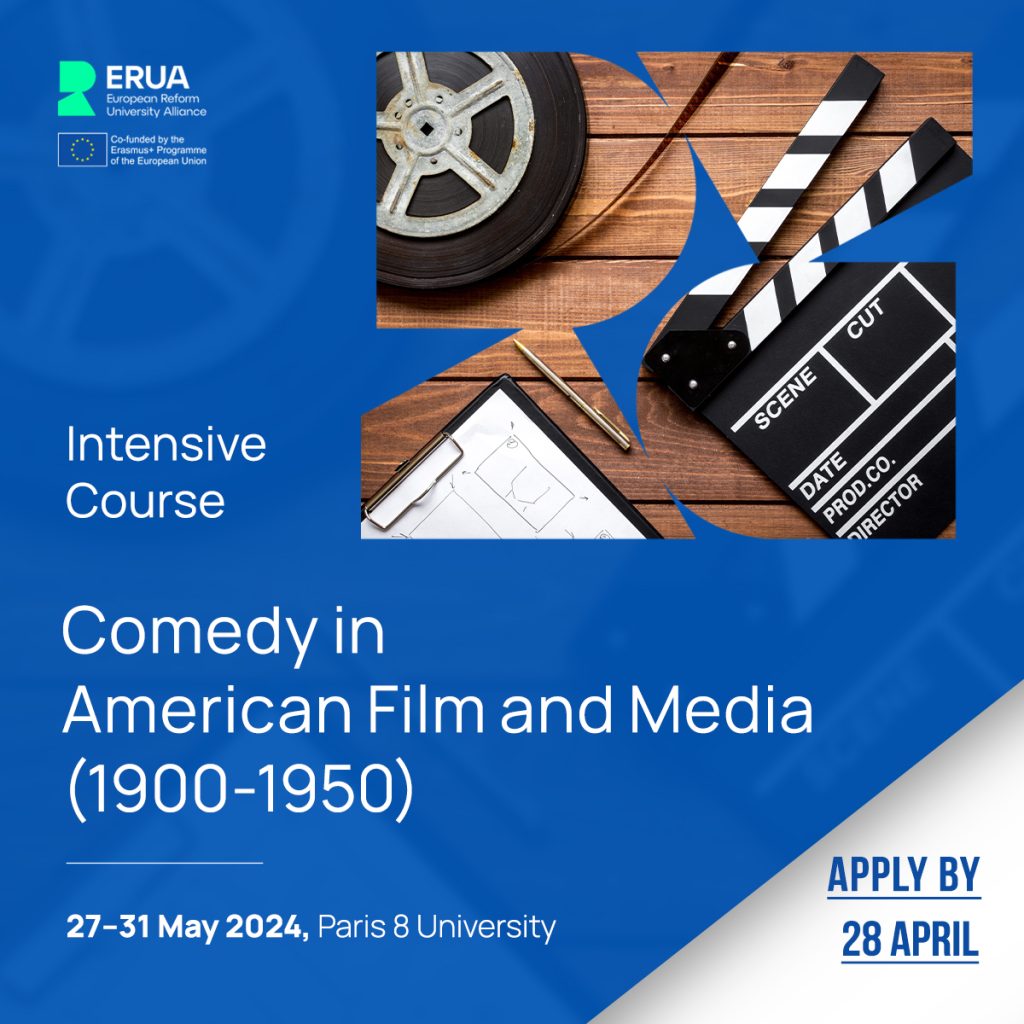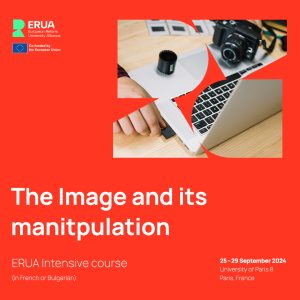27-31 May 2024
Paris 8 University
Paris 8 University is announcing a course focused on Film and Media Studies. The course will take place on-site in Paris from the 27th until the 31st of May 2024. It will be led by Noah Teichner.
The course is aimed to make students gain the following knowledge and skills:
– The ability to carry out introductory formal, cultural, and industrial analysis of comedy in the United States
– An understanding of the different approaches to the writing of film and media history in an academic context
– An introduction to the American film industry, before and after the rise of the studio system
– The ability to use theoretical concepts such as intermediality and transmediality in relation to both historical and contemporary media
– A mastery of basic analytical tools for analyzing humor and the structure of gags.
Students will study the history of comedy in the United States from a perspective that is at once aesthetic, cultural, and institutional. Examples of early cinema, slapstick comedy, and musicals will help to examine the role of gag, character, and narrative in both short and feature films. The circulation of jokes, performers, and comic routines across media (film, stage, phonograph, radio) will be a further subject of inquiry. Conducting this class in English will serve to highlight the role of language and verbal humor in comedy. Students will also be able to improve their comprehension and conversational skills in an immersive context.
Place: Paris, France
Funding: ERUA students can receive travel and accommodation funding from their home universities.





